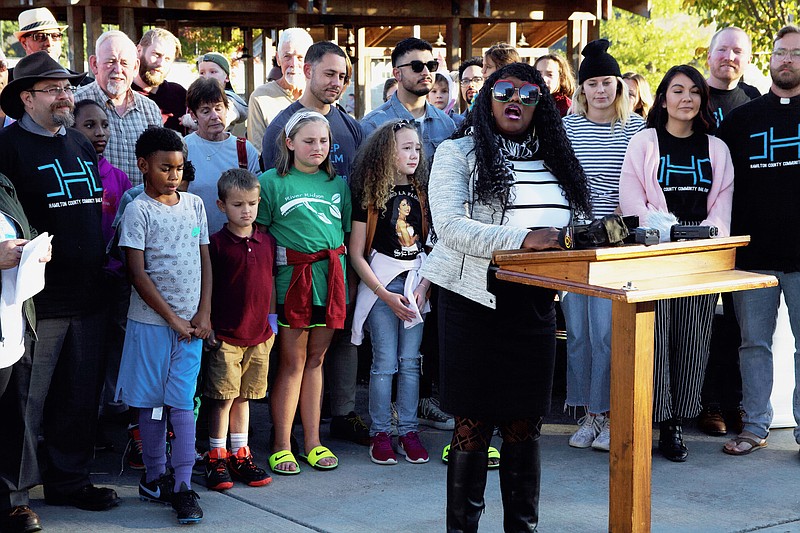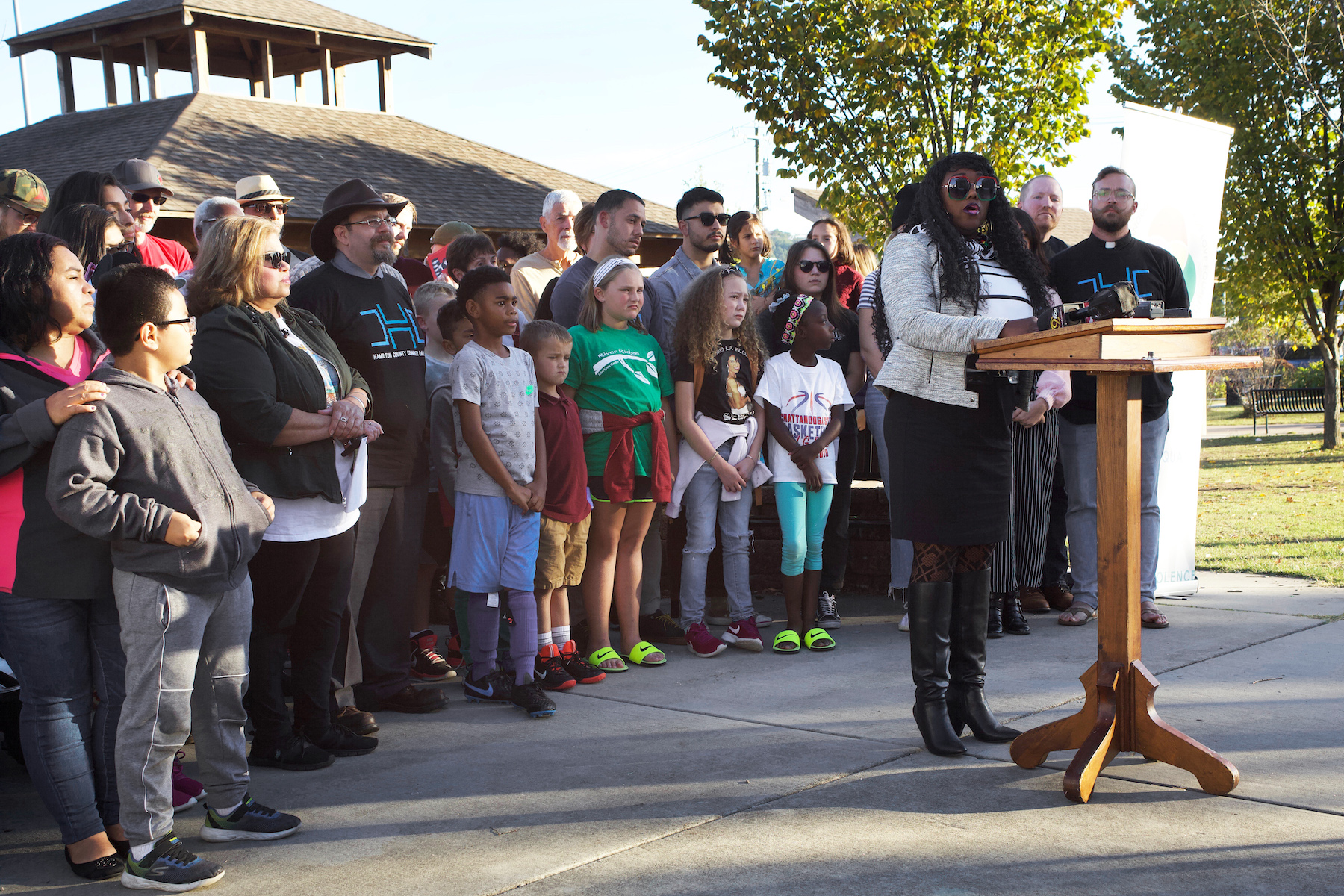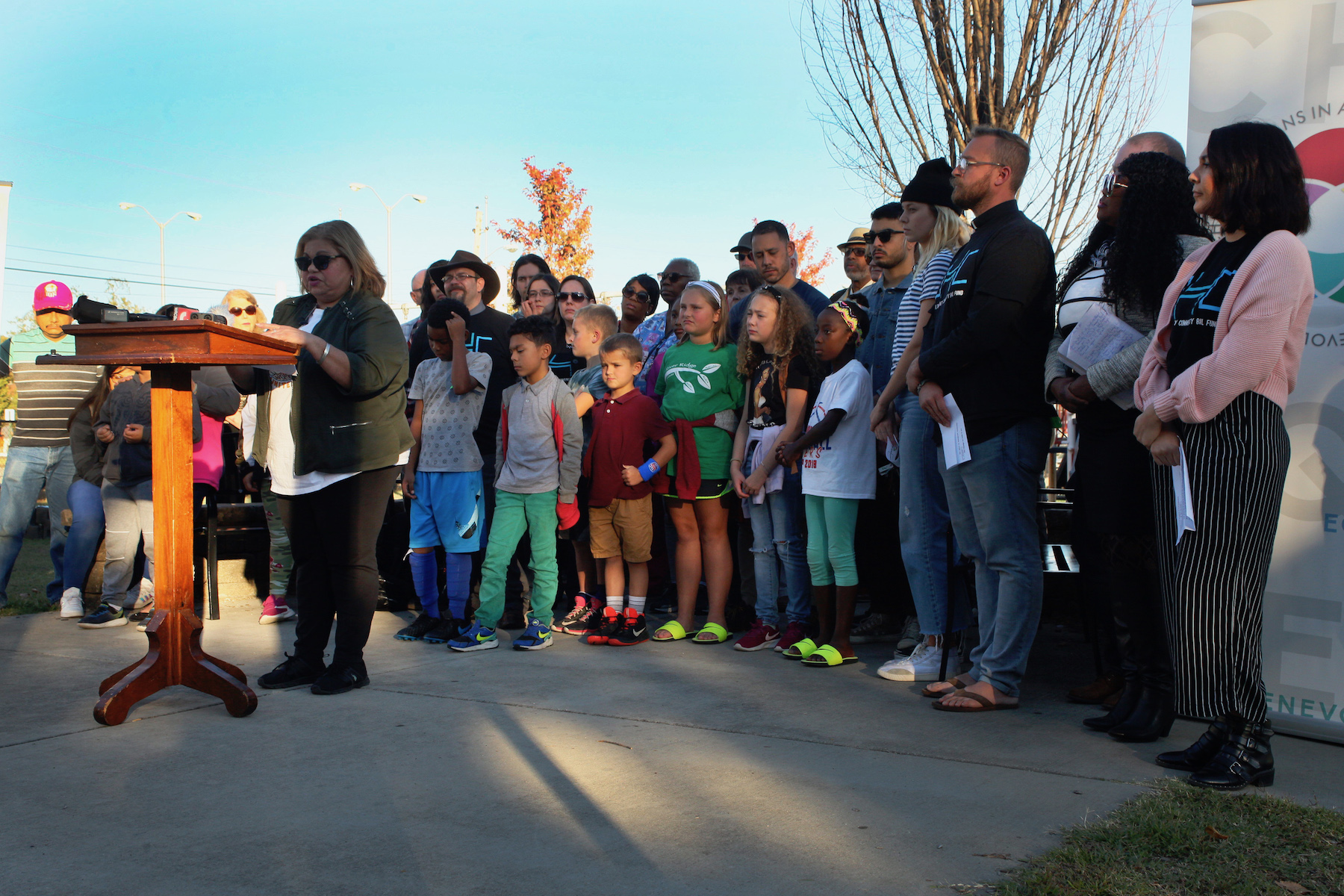Standing near the Highland Park Commons, leaders and supporters of Chattanoogans in Action for Love, Equality, and Benevolence (CALEB) announced they are raising a $20,000 fund for paying immigration bonds and reuniting local immigrant families detained by federal authorities.
Immigrants in Hamilton County are being taken into Immigrations and Customs Enforcement custody on a weekly basis after being stopped by local authorities for minor infractions like driving with a revoked license, said Sarah Marquez Berestecky, CALEB vice-chair.
The immigrants are held for days after their scheduled release so ICE officers can take custody, which usually involves sending the Chattanooga residents to states like Louisiana or Texas. The geographic distance and the high cost of the bonds - typically between $5,000 and $15,000 - places financial and emotional burdens on local families as they lose incomes and children lose parents, said Nitza Velasco, the leader of Tennessee United.
The bond fund is designed to pay a portion of the bond cost and provide assistance for local families to raise the rest. The bond money paid to ICE will be refunded once the detained person arrives for any scheduled court hearings.
"What we hope is that this fund will keep families together while legally pursuing their immigration process," Velasco said.
ICE regularly sends out detainers and requests for notification to local law enforcement about individuals the federal agency believes can be deported, according to the ICE website. These requests for holding people are sent to all law enforcement, even those like Hamilton County which is not part of ICE's 287(g) program that allows local police officers to work alongside federal agents.
Hamilton County Sheriff's Office would not confirm its involvement in detaining residents for ICE before time of publication.
Hamilton County residents who have a bond set by ICE or an immigration judge would be eligible to apply to the fund. Having a bond set is often a sign that the person has a higher chance of winning their case and being allowed to remain in the United States, Berestecky said.
Applications for the fund will be accepted once CALEB has met its fundraising goal, said Josh Woodrow, CALEB treasurer and Bridge City Community pastor.
The nonprofit CALEB, a collective of local churches, nonprofits and unions launched in 2016 with a mission to build political power and social capital in local communities. The group currently runs a similar bail fund for people in Hamilton County, which began in Oct 2018, and the group is looking to grow to $100,000 by the end of 2019.
The immigration bond fund functions similar to the bail fund in that it seeks to give residents an option for their loved ones who are detained that does not involve using a bail bond service, which charges interest on the loan and can leave people further in debt during a time of crisis. The immigration fund is an expansion of the work started by the community bail fund, said the Rev. Charlotte Williams, CALEB board chair and pastor of Eastdale Village Community United Methodist Church.
"People are imprisoned not because of their guilt but because of the size of their wallets," she said."The solution is to eliminate cash bail that punishes poor people."
From the reporter
I became a journalist to help people see people as people. But highlighting the human side of every policy decision, and how it is affecting your community, takes time as well as support from readers. If you believe in telling the stories of people in your community, please subscribe to the Times Free Press today. Contact me at wmassey@timesfreepress.com or 423-757-6249. Find me on Twitter at @News4Mass.



